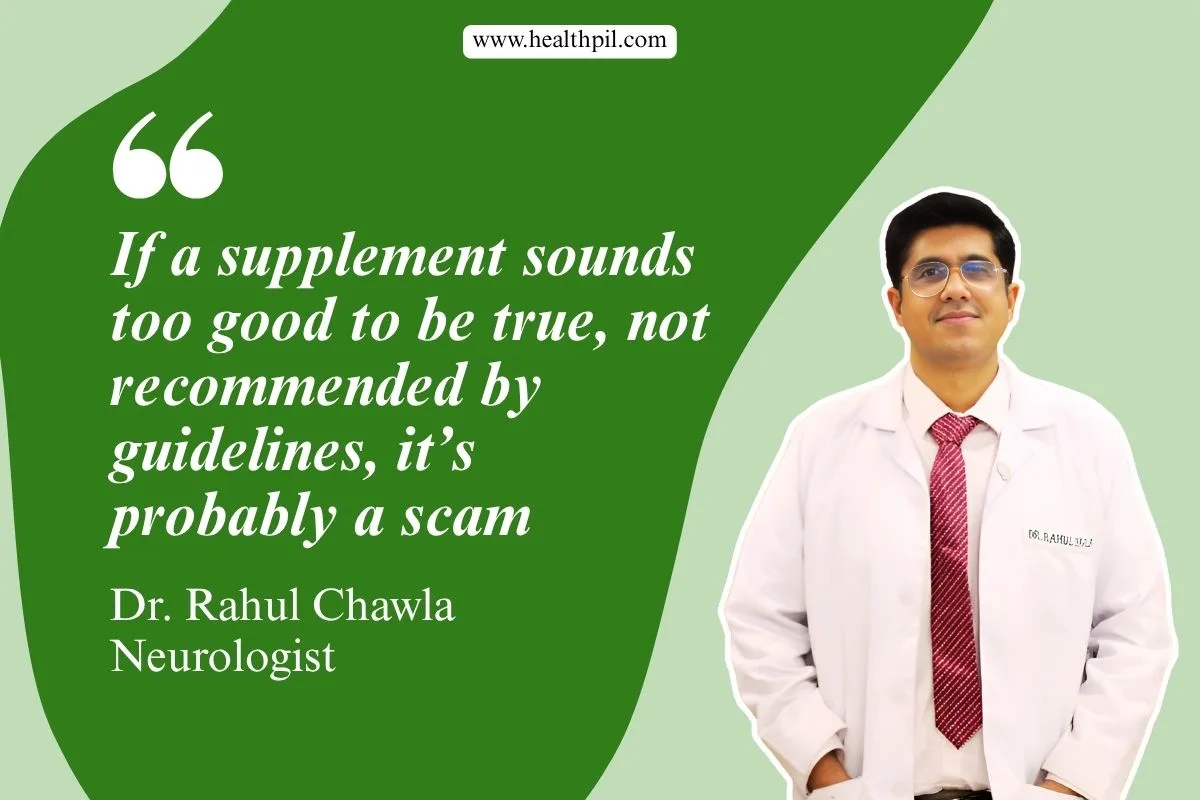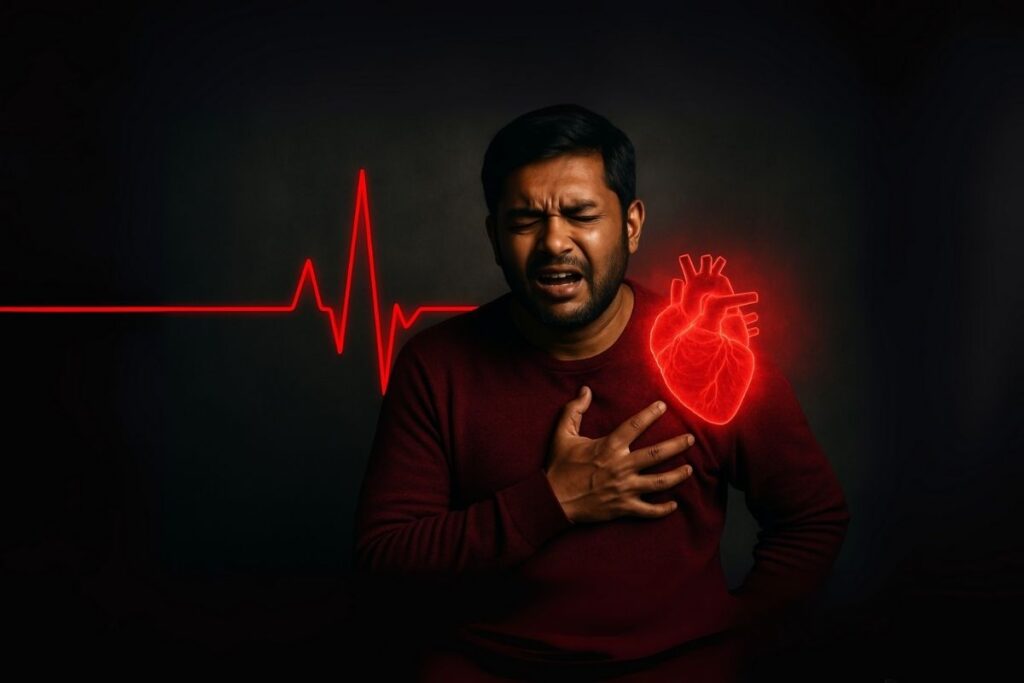How to know if you are at increased risk for heart attacks? Are there any warning signs you might be ignoring?
In the last 40 days, multiple young and middle-aged individuals in Hassan district, Karnataka collapsed suddenly and died, some on the spot, some on the way to the hospital. And just days ago, the shocking sudden death of actress Shefali Jariwala reportedly due to cardiac arrest added fuel to growing fears across India. How can people in their prime simply drop dead with no warning?
The question echoes across every WhatsApp group and health podcast: Why are young hearts failing? Could it happen to you too?
What Is Sudden Cardiac Arrest, and Why Is It Striking the Young?
Sudden cardiac arrest (SCA) occurs when the heart abruptly stops pumping due to a malfunction in its electrical system. It is not the same as a heart attack, which involves a blockage in blood flow. SCA is almost always fatal if not treated within minutes, and tragically, it often strikes without warning.
SCA is now a growing concern among young Indians, particularly in their 20s to 40s, even those without known heart problems. Many are fit, active, and seemingly healthy until the moment they collapse.
Symptoms That Might Precede Sudden Cardiac Arrest
In many cases, there are no warning signs. But some individuals may experience symptoms that are often ignored:
● Palpitations or rapid heartbeat
● Unexplained fainting or blackouts (especially during exercise)
● Chest pain or discomfort
● Dizziness or lightheadedness
● Fatigue or breathlessness
These signs are usually misattributed to stress, anxiety, or overexertion, especially in young people.
Common Causes and Risk Factors
Sudden cardiac arrest in the young can result from:
● Genetic heart conditions (like long QT syndrome, hypertrophic cardiomyopathy, Brugada syndrome)
● Myocarditis (often viral)
● Electrolyte imbalances (low potassium or magnesium)
● Drug/stimulant use
● Severe dehydration or extreme dieting
● Performance supplements or unregulated IV therapies
In recent years, unsafe wellness trends have been called out for their possible role in these sudden deaths.

Dr. Rahul Chawla Warns Against Detox Drips and Hidden Risks
“IV Detox Drips Are Not Harmless”. Neurologist Dr. Rahul Chawla, founder of HealthPil, speaking to NDTV, raised a red flag on the growing, unregulated use of IV glutathione and so-called ‘IV detox drips’, especially among young wellness enthusiasts. According to Dr. Chawla, these therapies are not supported by any guideline-recommended protocol and lack high-quality Randomized Controlled Trials (RCTs) or meta-analysis level evidence.
“Despite the glamorous marketing, these drips can cause more harm than benefit,” Dr. Chawla said. “Reported side effects include cardiac conduction abnormalities, arrhythmias, sudden hypotension, and in some cases, anaphylactic reactions.”
He added that multiple case reports have documented patients collapsing or dying shortly after receiving such drips. While a direct causal link to sudden cardiac deaths like those seen recently in Hassan or celebrities like Shefali Jariwala cannot yet be established, Dr. Chawla emphasized that the risks are real.
“If a supplement or therapy sounds too good to be true, it probably isn’t,” he cautioned. “Without proper evidence, especially in the form of RCTs or guideline endorsements, and with documented adverse effects, they should not be used.”
Dr. Chawla also drew attention to SUDEP (Sudden Unexpected Death in Epilepsy), an often-overlooked cause of death in young patients with epilepsy.
“SUDEP is not as rare as we think. It affects 1 in every 1,000 epilepsy patients annually, and the risk increases six to nine times in patients who either don’t take their anti-seizure medicines regularly or have poor seizure control.”
Dr. Chawla’s insights serve as a wake-up call, not just for patients, but for the entire ecosystem of unregulated wellness trends, supplement use, and overlooked neurological risks.
Myths and Misconceptions About Sudden Cardiac Death
Myth #1: “Only old people die from cardiac arrest”
Truth: Sudden cardiac death is increasingly common in the 25-45 age group, including athletes, actors, and working professionals.
Myth #2: “I go to the gym and eat clean, so I’m safe”
Truth: Fitness helps, but it can also unmask genetic heart issues if not screened properly. Overexertion without evaluation can be deadly.
Myth #3: “They probably didn’t eat well or sleep enough”
Truth: Many sudden deaths occur in people with healthy lifestyles. Genetics, infections, and unsafe treatments also play major roles.
FAQs About Sudden Cardiac Arrest
Can you predict sudden cardiac death?
Not always, but people with a family history, previous fainting, or unexplained palpitations should get screened.
Are IV detox drips safe?
According to experts like Dr. Rahul Chawla, they lack scientific backing and carry real risks, including cardiac complications and allergic reactions.
What should I do if someone collapses?
Check for breathing and pulse. If absent, start CPR immediately and use an AED (defibrillator) if available.
Can epilepsy cause sudden death?
Yes. It’s called SUDEP and mostly affects those with uncontrolled seizures or poor medication compliance.
How HealthPil Can Help
Worried about heart symptoms or family history of sudden death? HealthPil offers:
● Cardiologist consultations from home.
● Second opinions if you’re unsure about any diagnosis.
● Preventive check-ups, including ECG, Holter, and echo guidance.
● Access to neurologists for epilepsy care and SUDEP risk management.
Don’t wait for symptoms to get worse. Consult real doctors on HealthPil today.
Disclaimer
This article is for informational purposes only and does not substitute medical advice. Please consult a certified healthcare provider for diagnosis or treatment. In emergencies like sudden collapse or seizures, seek immediate medical attention.

